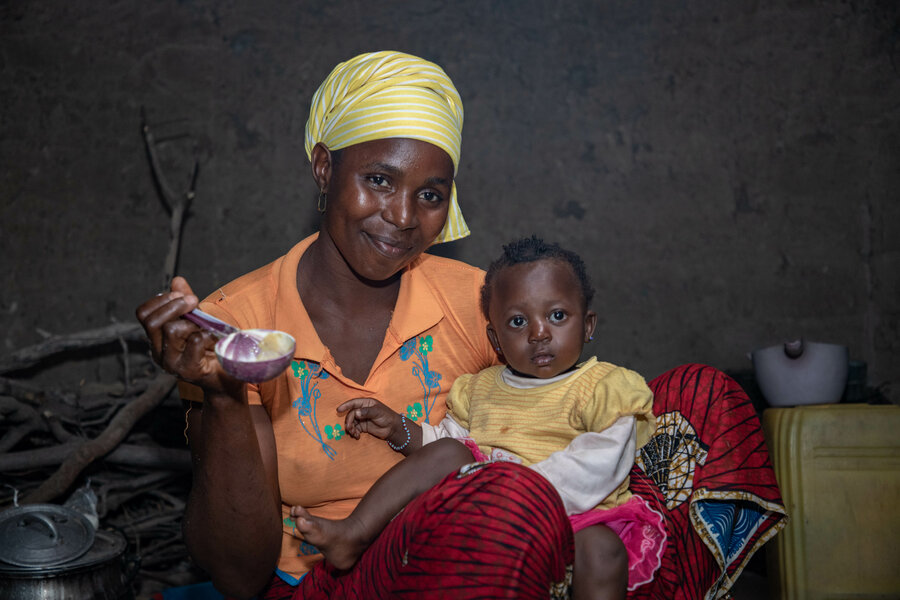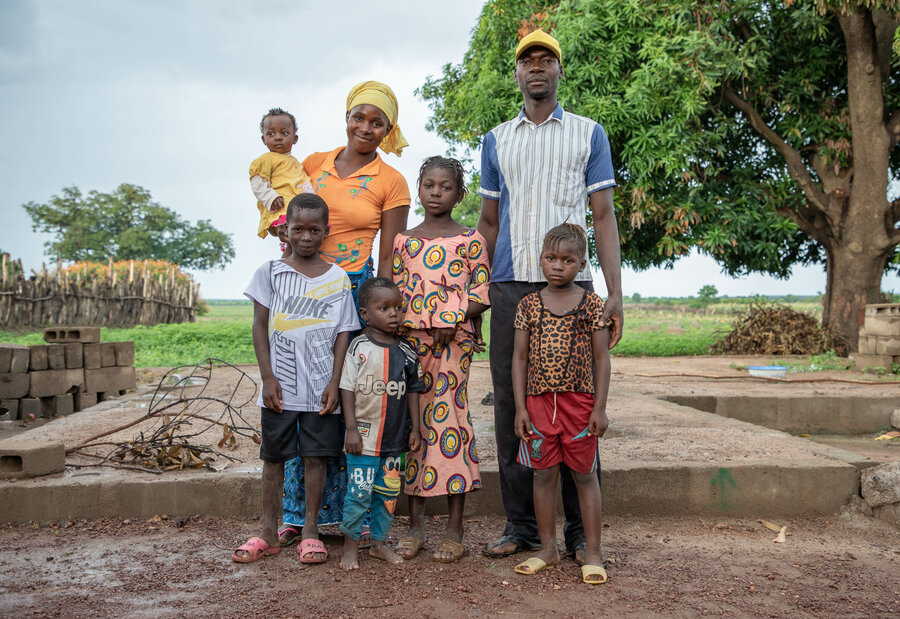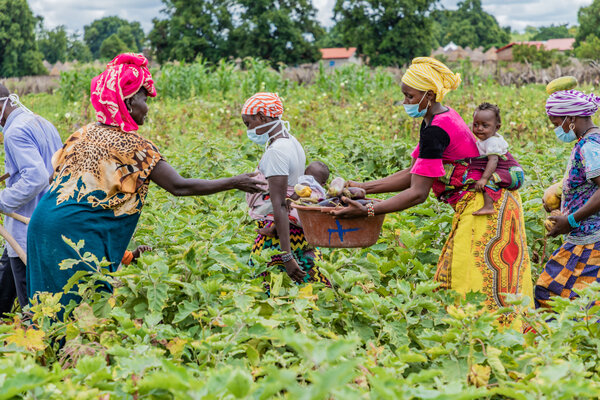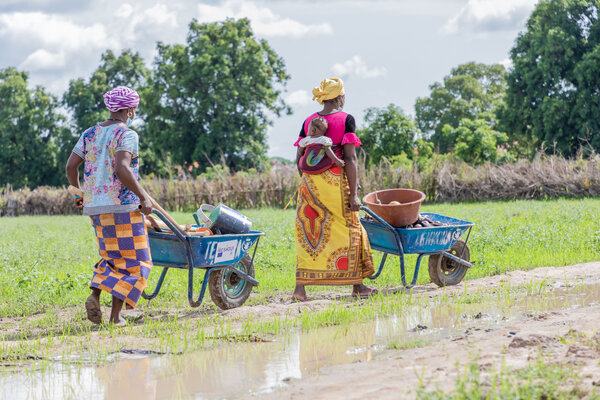Improved nutrition and agriculture go hand in hand through initiative in Guinea

Eating a balanced diet is important at all times, but even more so during pregnancy and breastfeeding as a mother’s well-being has a significant impact on the health and development of her child.
The World Food Programme (WFP) and the European Union’s RESIGUI project is supporting 20,000 food-insecure and vulnerable households across four regions of Guinea.
Food and nutrition assistance to 100,000 people comprises cash transfers, fortified cereal bars and oil rich in vitamin A.
“Since I started eating the (cereal bars) and oil, my breast produces sufficient milk for feeding my 6-months-old baby,” says Fadima Keita, a mother of six who lives with her husband Kalou Camara in Djeya, a village in Siguiri, northern Guinea, along the River Niger.

“I have really felt improvements in my health and have gained 2 kg since I started receiving assistance.”
Doorstep distributions have spared Fadima and others receiving assistance from having to make a 4 km walk to the health centre, which for some would include having to cross the river.
Women also receive on-site health education on good nutrition, hygiene practices and the introduction of nutritious, local food products to diversify children’s meals.
The project also features a comprehensive package for developing communities’ local food production systems, as a means of improving food security and nutrition.
Smallholder farmers, including Fadima and her husband, who are part of a market-gardening group, were provided with seeds, farming tools, storage facilities, access to water, cash for work such as digging wells, and training on good agricultural practices, governance, and fund management.


Cash received for community work, and from the sale of vegetables, has helped people eat a wider variety of food and to improve their nutrition.
Fadima explained that when she used to cook tôh – a traditional food of cassava flour that is eaten by vulnerable families who cannot afford to buy rice – it would sometimes go uneaten by her children.
“I am very happy that I can now cook rice and serve my family for lunch, which they like,” she says, explaining how vegetable production has increased and post-harvest losses fallen, since the initiative was launched.
Farming is the only thing Fadima has known how to do since childhood. She adds: “Though farming is difficult, especially when you have no cow to help you plough as was the case for my husband and myself, I will advise and encourage everyone to practise agriculture as its reward cannot be measured or overlooked.”
